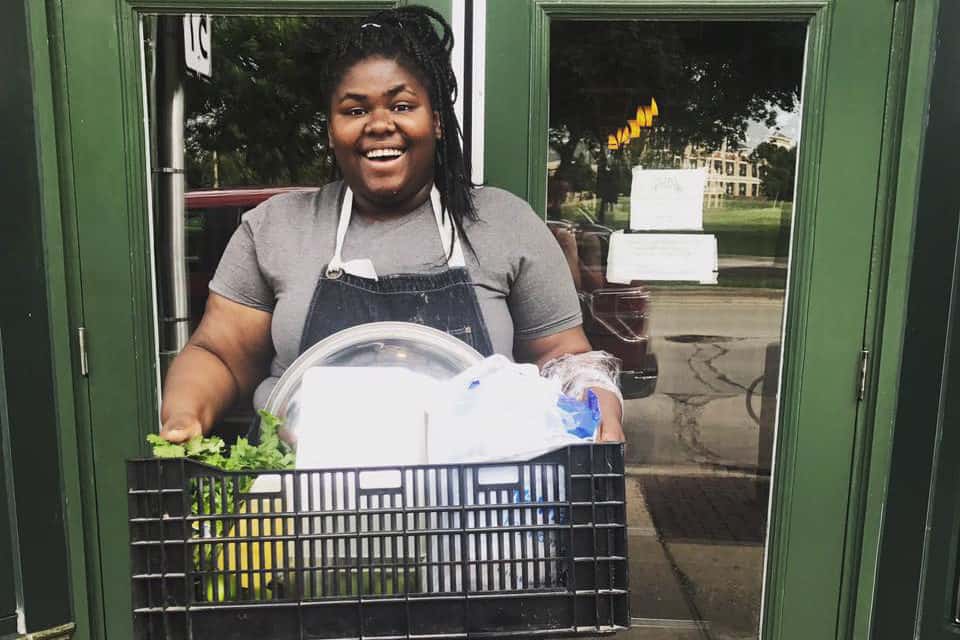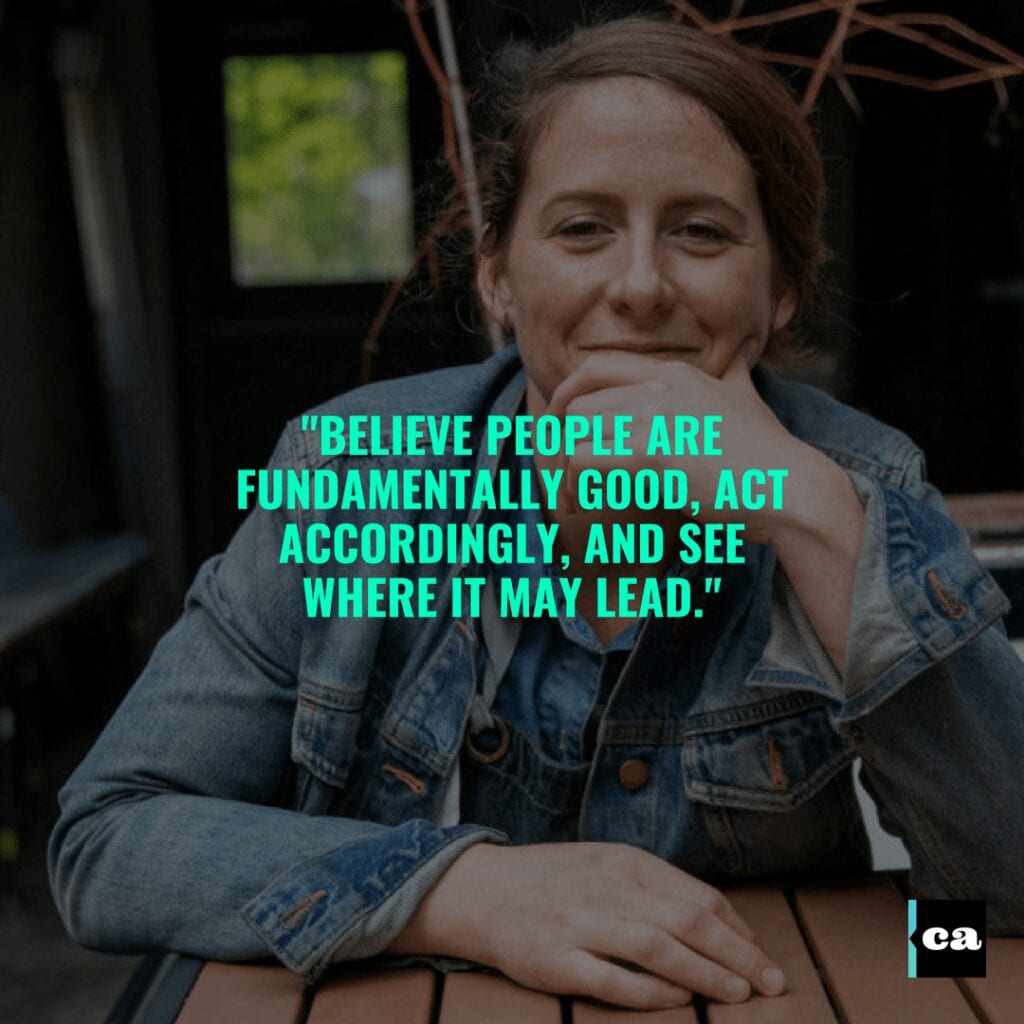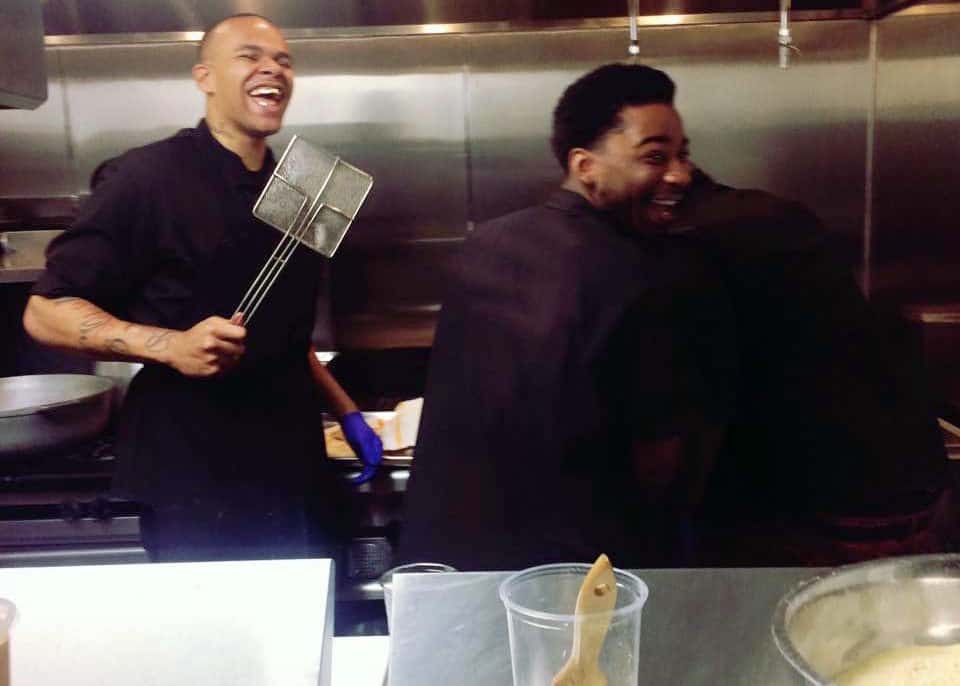This essay originally appeared on The Renewal Project
It’s been roughly 19 months since we opened the doors to The Tandem, a cozy 56-seat restaurant on Milwaukee’s Near North Side. When setting out to open my first restaurant, it was a no-brainer that a location in Lindsay Heights (a majority Black neighborhood with a poverty rate that afflicts nearly half its population) would employ young people from the surrounding area, even if it meant teaching every last new hire the ins and outs of having a restaurant job—grilling and temping a burger, dealing with an unruly customer, or simply showing up to work on time every day.
We’ve had over 80 employees, fed tens of thousands of guests, and comped at least a hundred bills due to screw-ups. We’ve signed on for three weddings, hosted dozens of graduations, witnessed one marriage proposal, and celebrated countless birthdays. If we were a toddler, we’d be chattering by now—a lot of nonsense with a few real words in between.
When asked to talk to The Renewal Project, it seemed some disconnected babbling with a few true words in between might be the best approach for a venture our age. And with that, here are 12 lessons we’ve learned so far.
Lesson 1: Everyone deserves a chance; you are not the right chance for everyone.
A job can lead to broader opportunities in life. A job can be someone’s first step into participating in a society that requires money. A job can be the money you need to make it through this month.
Some can’t see tomorrow through the challenges of today. Deep down we are all trying for the same thing, but the path is different depending on where you’re coming from and how you’re going to get where you’re heading.
Many times, I’ve had to take a deep breath when losing an employee who couldn’t hang on, and I’ve realized that we have at least been that young person’s first step on a long journey.

Lesson 2: Set an example, as long as the example is something you believe.
Being on time can feel impossible, but it’s not hard. Set an alarm. Get up when the alarm goes off. Shower, coffee, breakfast, TV, walk the dog, feed the kid, hair, makeup—whatever you do, do it in the time you have.
Leave the house. Get to work. If I have to hit the restaurant supply before work, it’s a 6:30am wake-up call (on a day that doesn’t end until after 10 p.m.). But if I roll up an hour after the staff has lined up outside the door for work because I’m exhausted and snoozed my alarm three too many times, they’ll be late the next day.
Lesson 3: You cannot be an example all the time; sometimes you will be an ass.
I should never have told Chris I wished he was never born—it doesn’t matter if it was my 50th hour of active cooking that week and the third time he’d messed up an order in one service. It’s a wonder we were able to mend fences and move past that day, but the reconciliation owes a lot to simply owning up to bad judgment and an even worse temper in a terribly hot kitchen.

Lesson 4: But just keep trying, because growing up is hard and everyone’s path is different.
Everyone’s path is different. Growing up is hard. Just keep trying.
Lesson 5: No matter our differences, we can see the other side if we truly look.
Preconceived notions make it difficult for us to truly get to know one another. Asking a young black man only about the hardships of his life may prevent you from learning so much more about him. Watching our family of customers and staff truly get to know each other has been the best lesson of all.
You might not think a 50-something white woman and a 20-year-old aspiring young black singer and bartender would have much to talk about over lunch, but you’d be surprised at how often those two have lunch together outside the neighborhood restaurant just so they can talk.

Lesson 6: Do less harm.
Recently, I had a heartfelt conversation with a brilliant young woman who works with me in the kitchen. She told me she never realized she was a violent person until she got into relationship. “How did that discovery make you feel?” I asked. “Is this something you like about your life?”
These are tough questions only the asked can answer—the answers may surprise even the most sure-footed. If it’s not what you want, then why is it something you accept and participate in? I ask myself this every day.
Lesson 7: Do more good.
Can you drive to a young woman’s aide at 10 o’clock at night because she needs help—even if it’s not “your place” to help? It takes a village. You live in this village. What can be your contribution? Do you know how to change a tire? To drive a stick shift?
To make a dinner for a family of four (that you’d actually enjoy) for less than $8? Do it and teach it. Who taught you how to make chicken soup? Who taught you how to swim? Who taught you how to deep clean the bathroom in your new apartment? We can figure out anything with a quick Internet search, but to learn it, it must truly be taught.
Lesson 8: Take yourself seriously.
Yes, you really do know how to change that tire, just exercise that dormant part of your brain with some confidence. Yes, you actually have the money needed to get a kid out of a jam, and know she has the means to make good on her end because she works with you. Suck it up and help.
If you’re really trying and making honest mistakes from a place of learning and growth, others will hold you up when there’s little else to lean on.
Lesson 9: Take yourself less seriously.
You can’t make anyone do anything and you won’t always get what you want. That same kid that you helped out of a jam at 10 p.m. might drive without insurance again and get in another crash. You can’t learn someone’s lessons for them.
Lesson 10: Own your perspective and privilege.
Those lessons aren’t the same for all of us. Try to advocate for those who face punitivate discrimination on account of being broke or brown.
I get pulled over after work with a few beers in me and it’s assumed I’m tired and eager to get home; my 21-year-old line cook gets pulled over after getting hit by another car through no fault of his own, and his vehicle gets searched and he’s given a ticket.
Acknowledge and try to understand how different people get treated in different situations and take that into account when trying to be a part of it all.
Lesson 11: It’s lonely.
I send the kids home two-by-two in rides and Lyfts and on the bus. I lock up as everybody leaves to go home. We spray “love you’s” and “g’night’s” all over each other before going our separate ways. And then I go home and the house is dark and my mind is reeling, and I have to go to sleep early enough to be able to do it all again tomorrow.
Lesson 12: You’re never alone.
If you’re really trying and making honest mistakes from a place of learning and growth, others will hold you up when there’s little else to lean on. Believe people are fundamentally good, act accordingly, and see where it may lead.







